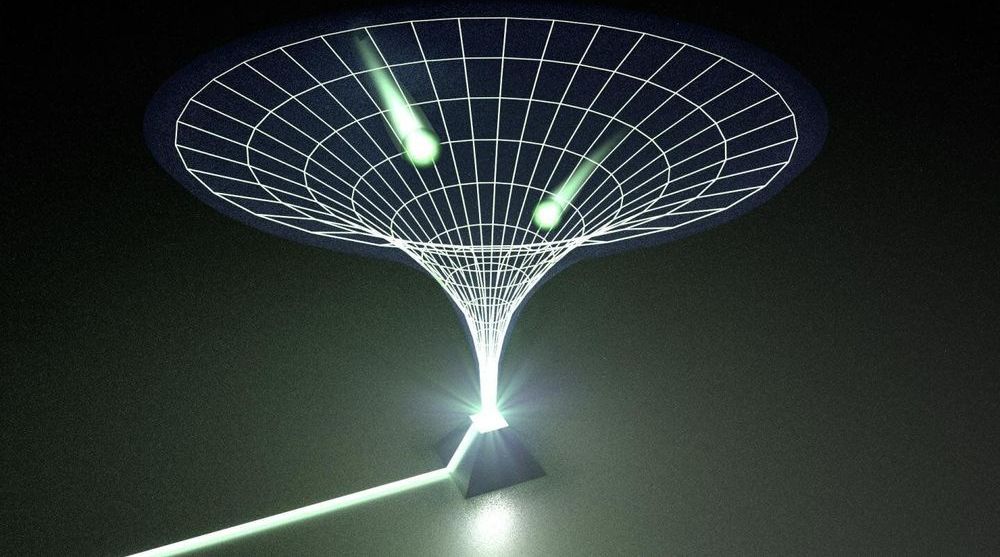South Korea is a prime suspect for exploiting the secret software vulnerabilities in a sophisticated espionage campaign.



Professor Ronny Thomale holds a chair for theoretical condensed matter physics, the TP1, at the Julius-Maximilian University of Würzburg. The discovery and theoretical description of new quantum states of matter is a prime objective of his research. “Developing a theory for a new physical phenomenon which then inspires new experiments seeking after this effect is one of the biggest moments in a theoretical physicist’s practice,” he says. In an ideal case, such an effect would even unlock unexpected technological potential.
All this has come together with a recent project which Thomale pursued together with the optical experimental group of Professor Alexander Szameit at the University of Rostock, the results of which have now been published in Science.

Newborns and babies have so far seemed to be largely unaffected by the coronavirus, but three new studies suggest that the virus may reach the fetus in utero.
Even in these studies, the newborns seemed only mildly affected, if at all — which is reassuring, experts said. And the studies are small and inconclusive on whether the virus does truly breach the placenta.
“I don’t look at this and think coronaviruses must cross across the placenta,” said Dr. Carolyn Coyne of the University of Pittsburgh, who studies the placenta as a barrier to viruses. She was not involved in the new work.

For the first time, scientists have reprogrammed cells from a 114-year-old woman into induced pluripotent stem cells (iPS cells), a move which they describe as a significant step toward understanding “the underlying mechanisms of extreme longevity and disease resistance.”
iPS cells are adult cells that have been genetically reprogrammed into an embryonic stem cell-like state and are able to give rise to any of the specialized cell types of the body, whether it’s neurons, blood cells, or heart cells.
Until this new project, researchers weren’t even certain whether they could create viable iPS cells from someone so elderly, let alone a supercentenarian. Now they have shown it’s possible to effectively make these aged cells resemble young pluripotent cells, the researchers believe they might have made a step towards the reversal of cellular aging.
Billionaire CEO told employees to ‘tighten their belts’.

Using transmission electron microscopy (TEM), scientists from the Indian Council of Medical Research (ICMR), managed to image the novel Coronavirus. The image was taken from the throat swab sample of the first laboratory-confirmed novel Coronavirus patient in India.
Scientists tested a total of seven negative-stained virus particles having features of Coronavirus-like particles from the sample.
The novel Coronavirus, which originated in China late last year, has caused a pandemic across the world.


Moderate consumption of marijuana doesn’t adversely affect lung function, according to a study.
A study published in 2012 in The Journal of the American Medical Association (JAMA) had some good news for people who smoke marijuana: smoking at a rate of one joint a day for as long as seven years doesn’t seem to affect lung function adversely.

Abbott Laboratories won U.S. Food and Drug Administration approval for its molecular test for the Coronavirus strain COVID-19, which the company says can deliver “positive results in as little as five minutes and negative results in 13 minutes.”
The FDA’s “emergency use authorization” awarded to Abbott’s ID NOW COVID-19 test is the latest in a growing number of agency approvals for more rapid molecular “point-of-care” diagnostic tests that can be used in temporary screening locations, doctor’s office labs and nursing homes to detect the Coronavirus strain COVID-19 within a half hour.
“With rapid testing on ID NOW, healthcare providers can perform molecular point-of-care testing outside the traditional four walls of a hospital in outbreak hotspots,” Abbott president and chief operating officer Robert Ford said.
